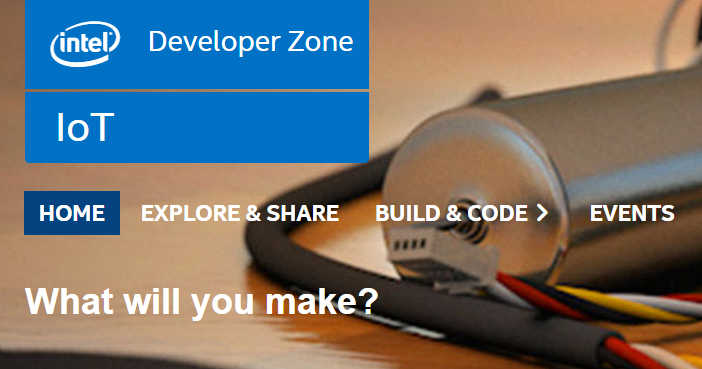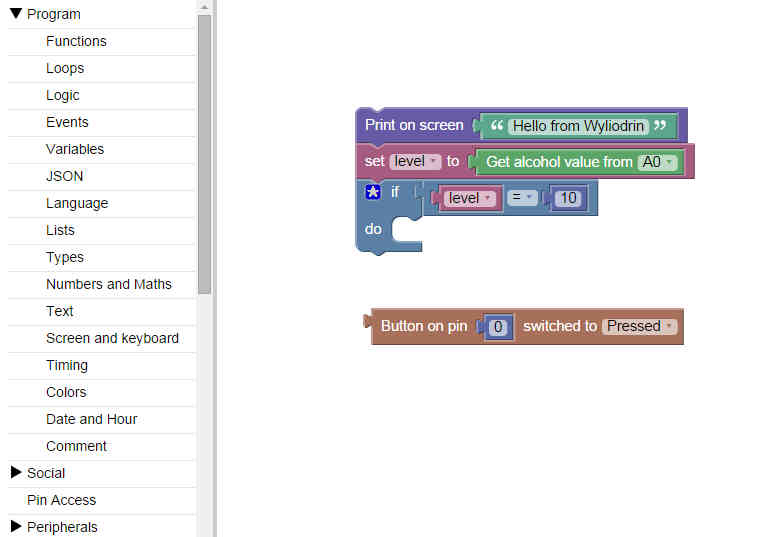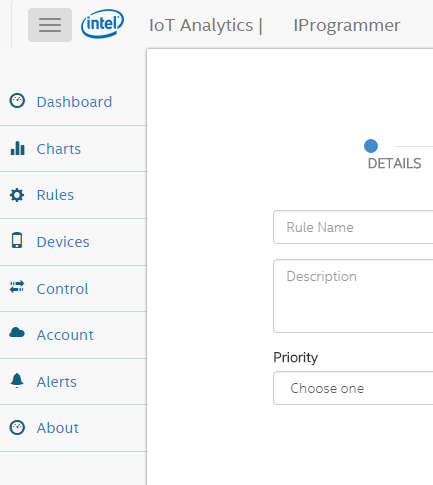| Intel IoT Dev Kit |
| Written by Harry Fairhead | |||
| Thursday, 02 October 2014 | |||
|
Intel is serious about the whole IoT area including hobbyists and small startups. It is not only providing the hardware you need, but the surrounding software and services. The new Intel IoT Dev Kit is well worth looking at.
The only real problem with Intel's IoT offering is that there is so much of it. The core has to be the two development boards that Intel recently released. The Galileo is a relatively large device running Linux but with Arduino compatibility.
The Edison is very small device complete with WiFi connectivity.
Roughly speaking the Galileo is what you want to use if you have a lot of interfacing requirements - a robot controller, say - and the Edison is what you want to use if you have a very focused application - a remote temperature recorder, say. The two devices together cover a very wide range of possible applications. The IoT Dev Kit is featured on a new web site where the information about the two development boards and their software can be gathered together. For example, as well as the standard Arduino shields, you can also find out about the Grove Starter kit and the range of sensors from Seed and other third party manufacturers. In addition to other resources, the site also highlights the different IDEs and languages that are available. You can use the Eclipse ADT to work in C/C++ or, of course, you can stick with the familiar Arduino IDE. Some not-so-well-known alternatives are the use of Intel's XDK IoT edition, which lets you create apps using Node.js; and the Wyliodrin graphical programming language, which works on the Galileo. The Wyliodrin system is particularly interesting because it makes use of a Scratch-like block-based language to allow non-programmers, or just learning programmers, to create IoT systems.
Intel's XDK is a JavaScript framework for the development of web apps that target mobile devices - iOS, Windows, Android etc. The IoT edition extends this with extra I/O capabilities so that you can write control apps in JavaScript. The final big new feature is the availability of Intel IoT Analytics. This is an area of IoT that is often overlooked or served by custom ad-hoc solutions. It is a wheel that is invented many times over. The service is free for non-commercial use and you can sign up and register your Intel boards very quickly. From there you have to install an agent on the devices and customize the data you would like connected, but to get, say, a temperature sensor online complete with charts is very quick.
What is interesting is that Intel seems to be very serious about getting the maker community signed up to using its approach to IoT. The two development boards are reasonably priced and there are starter kits that make it easy to take the first steps. The web site also has lots of getting started videos and examples of what people have done using the system. Intel also has an IoT Roadshow at which it is giving away Galileo and Edison boards to the first 100 people who register at each event, which takes the form of a 2-day hackathon. The next one to take place in Europe is in Munich, Germany on October 18-19. At the moment you get the impression that Intel is trying hard, but not really delivering the goods. For example, if you try to find a specification for the Galileo or the Edison on the site that tells you what each can do then you will be disappointed. Repeatedly the site encourages and promises, but when you try to find out exactly what something can do or be used for the information is missing. For example, if you select the "Hello World" example it is only for the Galileo and doesn't do a lot for the beginner. Although the Edison is the more radical of the two development boards, there is far less information on using it in novel ways on the site. If Intel is going to have a success with IoT then it is almost certain that it will be led by Edison rather than Galileo! The IoT Kit is just a beta and there is time for improvements. What is truly interesting is that Intel sees the value in this particular market.
More InformationRelated ArticlesIntel's New Edison Is As Small As A Postage Stamp Intel Inside - The Arduino Galileo
To be informed about new articles on I Programmer, install the I Programmer Toolbar, subscribe to the RSS feed, follow us on, Twitter, Facebook, Google+ or Linkedin, or sign up for our weekly newsletter.
Comments
or email your comment to: comments@i-programmer.info |
|||
| Last Updated ( Sunday, 14 December 2014 ) |






